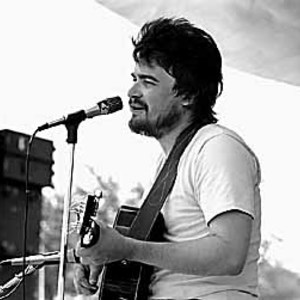John Prine

- Meta styles:
- Contemporary Folk, Singer/Songwriter
- Styles:
- Contemporary Folk, Progressive Folk
John Prine (born October 10, 1946 in Maywood, Illinois) is an american country/folk singer-songwriter who has achieved widespread critical (and some commercial) success since the early 1970s. The son of William Prine and Verna Hamm, his grandfather had played guitar with Merle Travis and he started playing guitar himself at 14 years old. He was a postman for 5 years and spent a couple of years in the army before starting his musical career in the Chicago area. He emerged in 1971 with a highly acclaimed debut album titled John Prine.
The son of William Prine and Verna Hamm, his grandfather had played guitar with Merle Travis and he started playing guitar himself at 14 years old. He was a postman for 5 years and spent a couple of years in the army before starting his musical career in the Chicago area. He emerged in 1971 with a highly acclaimed debut album titled John Prine. He and friend Steve Goodman (another folk singer-songwriter) had been minor stars in the Chicago folk scene before being "discovered" by Kris Kristofferson. The album John Prine included his signature songs "Illegal Smile", "Sam Stone", and the environmentalist newgrass standard "Paradise". The album also included "Hello In There", a song about aging that was later covered by Joan Baez, Bette Midler, and Eddi Reader, and "Angel From Montgomery", a song now also associated with Bonnie Raitt, who occasionally brings Prine on-stage with her for live performances of the song. The album received many positive reviews, and some hailed Prine as "the next Dylan". Bob Dylan himself appeared unannounced at one of Prine's first New York City club appearances, anonymously backing him on harmonica.
Later albums include Sweet Revenge (1973, containing such Prine fan favorites as "Dear Abby", "Grandpa was a Carpenter", and "Christmas In Prison"), and Common Sense (1975, with "Come Back to Us Barbara Lewis Hare Krishna Beauregard").
In 1991 Prine released the Grammy Award-winning The Missing Years, his first collaboration with producer and bassist Howie Epstein. The title song records Prine's humorous take on what Jesus did in the unrecorded years between his childhood and his ministry. In 1995 Prine released Lost Dogs and Mixed Blessings, another collaboration with Epstein. In 1997 Prine followed with In Spite of Ourselves, which was unusual for Prine in that it contained only one original song; the rest were covers of classic country songs. All were collaborations with Prine's favorite female country vocalists, including Lucinda Williams and Iris DeMent.
In early 1998 Prine was diagnosed with throat cancer, but survived after an operation to remove the tumor and this has added gravel to his voice. In 2003 he was given a Lifetime Achievement Award for songwriting by the UK's BBC Radio 2 and that same year was inducted into the Nashville Songwriters Hall of Fame. The following year saw his classic "Sam Stone" covered by Laura Cantrell for the Future Soundtrack for America compilation.
In 2005, Prine released his first all-new album since In Spite of Ourselves. This new album, Fair and Square, tends toward a more laid-back, acoustic approach than, for example, Lost Dogs and Mixed Blessings. The album contains songs such as "Safety Joe", about a man who has never taken any risks in his life, and also "Some Humans Ain't Human", Prine's protest piece on the album, which talks about the ugly side of human nature and includes a quick shot at President George W. Bush. Fair and Square won the 2006 Grammy Award for Best Contemporary Folk Album.
The 2005 Americana Music Awards marked another significant achievement for Prine. At the September 9th ceremony, Prine was honored with the Artist of the Year award, which was accepted in his name by awards host and long-time friend Billy Bob Thornton.
- Sort by

Live At The Other End CD2
- Year:
- 2021
- Tracks:
- 19
- Bitrate:
- 320 kbps

Live At The Other End CD1
- Year:
- 2021
- Tracks:
- 20
- Bitrate:
- 320 kbps

Crooked Piece Of Time: The Atlantic & Asylum Albums (1971-1980) CD7
- Year:
- 2020
- Tracks:
- 10
- Bitrate:
- 320 kbps

Crooked Piece Of Time: The Atlantic & Asylum Albums (1971-1980) CD6
- Year:
- 2020
- Tracks:
- 10
- Bitrate:
- 320 kbps

Crooked Piece Of Time: The Atlantic & Asylum Albums (1971-1980) CD5
- Year:
- 2020
- Tracks:
- 10
- Bitrate:
- 320 kbps

Crooked Piece Of Time: The Atlantic & Asylum Albums (1971-1980) CD4
- Year:
- 2020
- Tracks:
- 11
- Bitrate:
- 320 kbps

Crooked Piece Of Time: The Atlantic & Asylum Albums (1971-1980) CD3
- Year:
- 2020
- Tracks:
- 12
- Bitrate:
- 320 kbps

Crooked Piece Of Time: The Atlantic & Asylum Albums (1971-1980) CD2
- Year:
- 2020
- Tracks:
- 13
- Bitrate:
- 320 kbps

Crooked Piece Of Time: The Atlantic & Asylum Albums (1971-1980) CD1
- Year:
- 2020
- Tracks:
- 13
- Bitrate:
- 320 kbps

I Remember Everything (CDS)
- Year:
- 2020
- Tracks:
- 1
- Bitrate:
- 293 kbps
 Jackson Browne 38
Jackson Browne 38 John Hiatt 39
John Hiatt 39 Steve Goodman 17
Steve Goodman 17 Guy Clark 22
Guy Clark 22 Jerry Jeff Walker 43
Jerry Jeff Walker 43 Jesse Winchester 15
Jesse Winchester 15 Laurel Canyon Ramblers 3
Laurel Canyon Ramblers 3 Lyle Lovett 27
Lyle Lovett 27 Todd Snider 22
Todd Snider 22 Willis Alan Ramsey 1
Willis Alan Ramsey 1 David Crosby 20
David Crosby 20 Freedy Johnston 14
Freedy Johnston 14 Paul Simon 82
Paul Simon 82 Peter Case 16
Peter Case 16 Peter Karp 7
Peter Karp 7 Ry Cooder 65
Ry Cooder 65 Tom Petty 18
Tom Petty 18 Tom Rush 15
Tom Rush 15 Bruce Cockburn 51
Bruce Cockburn 51 Eric Andersen 29
Eric Andersen 29 Iris DeMent 8
Iris DeMent 8 James McMurtry 14
James McMurtry 14 John Stewart 27
John Stewart 27 Randy Newman 47
Randy Newman 47 Sam Baker 6
Sam Baker 6 Steve Forbert 35
Steve Forbert 35 Warren Zevon 35
Warren Zevon 35 David Bromberg 13
David Bromberg 13 Keb' Mo' 21
Keb' Mo' 21 Kelsey Waldon 10
Kelsey Waldon 10 Kinky Friedman 13
Kinky Friedman 13 Marshall Chapman 10
Marshall Chapman 10 Michael Hurley 28
Michael Hurley 28 Michael Peter Smith 1
Michael Peter Smith 1